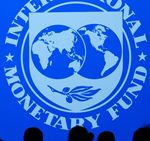Published on Fri, 2020-10-16 11:50
A range of different forms of confinement and quarantine were implemented around the world in order to slow down the spread of the pandemic and avoid a collapse of overburdened health systems. In that process, low-paid services such as home deliveries, food processing, garbage collection and care-giving were identified as “essential”. In most comparatively affluent countries those services are largely provided by immigrants and yet, as reported from the UK by Imogen Richmond-Bishop of Just Fair, “COVID-19 has disproportionately affected migrant communities” through drops in income; limited access to welfare support; barriers for homeless migrants to access accommodation and overcrowded and substandard housing.” |
|
Published on Fri, 2020-10-16 11:38
Governments and international organizations have responded to the economic and health crises resulting from the COVID-19 pandemic and consequent lockdown on an unprecedented scale. The announced liquidity measures, rescue packages and recovery programmes total US$ 11 trillion worldwide. A total of 196 countries and territories have taken political measures, albeit of very different scale and scope, depending on their fiscal capacity and policy space. If used in the right way, these programmes could offer the chance to become engines of the urgently needed socio-ecological transformation proclaimed in the 2030 Agenda for Sustainable Development. Some governments and international organizations have explicitly articulated this claim by promising not to return to the old normal after the dual crisis and to "build back better", for instance by a Green (New) Deal. |
Published on Thu, 2020-10-15 13:33
Nearly 380 civil society organizations have urged Members of the World Trade Organization to strongly support the adoption of a draft decision proposed by India and South Africa for a waiver from certain provisions of the TRIPS Agreement to combat the worsening COVID-19 pandemic. India and South Africa have submitted a proposal (IP/C/W/669) to the WTO TRIPS Council on a "Waiver from certain provisions of the TRIPS Agreement for the prevention, containment and treatment of COVID-19". |
Published on Sat, 2020-10-10 00:00
Join the Conference and empower BDCSOprocess virtual annual conference 2020 In Zoom with Bangla and English translation facilities. Non-member, please register in this link, you will receive the software link later. Session 10th Oct. Dhaka time 11h30: UN in 75, Interfacing Government and Civil Societies for Development and Sustainable Peace |
Published on Tue, 2020-10-06 00:00
More than 500 organisations and academics from 87 countries have issued a statement today calling on the International Monetary Fund (IMF) to stop promoting austerity and instead support policies that advance gender justice, reduce inequality, and put people and planet first. The IMF has already begun locking some countries into long term austerity-conditioned loans, while encouraging countries to take such recovery measures through its short-term, front loaded emergency financing packages. Such policies will further entrench gender and economic inequality and undermine any chance of an inclusive recovery, especially as many countries in the Global South are expected to need more long-term financing in the near future. |
SUSCRIBE TO OUR NEWSLETTER






